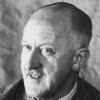Halldor Laxness

Halldor Laxness
Halldór Kiljan Laxness; born Halldór Guðjónsson; 23 April 1902 – 8 February 1998) was a twentieth-century Icelandic writer. Laxness wrote poetry, newspaper articles, plays, travelogues, short stories, and novels. Major influences included August Strindberg, Sigmund Freud, Sinclair Lewis, Upton Sinclair, Bertolt Brecht and Ernest Hemingway. He received the 1955 Nobel Prize in Literature; he is the only Icelandic Nobel laureate...
NationalityIcelandic
ProfessionNovelist
Date of Birth23 April 1902
CityReykjavik, Iceland
CountryIceland
My opinion has always been this. That you ought never to give up as long as you live, even though they have stolen everything from you. If nothing else, you can always call the air you breath your own, or at any rate you can claim that you have it on loan. Yes, lass, last night I ate stolen bread and left my son among men who are going to use pick-handles on the authorities, so I thought I might as well look you up this morning.
A wise man once said that next to losing its mother, there is nothing more healthy for a child than to lose its father.
Whoever doesn't live in poetry cannot survive here on earth.
Human beings, in point of fact, are lonely by nature, and one should feel sorry for them and love them and mourn with them. It is certain that people would understand one another better and love one another more if they would admit to one another how lonely they were, how sad they were in their tormented, anxious longings and feeble hopes.
Of all the creatures that man kills for his amusement there is only one that he kills out of hatred—other men. Man hates nothing as much as himself. That is why war is called the leprosy of the human soul.
What you have stolen can never be yours.
This was the first time that he has ever looked into the labyrinth of the human soul. He was very far from understanding what he saw. But what was of more value, he felt and suffered with her. In years that were yet to come, he relived this memory in song, in the most beautiful song this world has known. For the understanding of the soul's defencelessness, of the conflict between the two poles, is not the source of the greatest song. The source of the greatest song is sympathy.
Like all great rationalists you believed in things that were twice as incredible as theology.
No one is so busy that he hasn't the time to dismantle a work of art.
It's an old saying that one still has to know something, despite everything.
My motto is strong packaging, clear addressing.
I spent my entire childhood in an environment in which the mighty of the earth had no place outside story books and dreams.